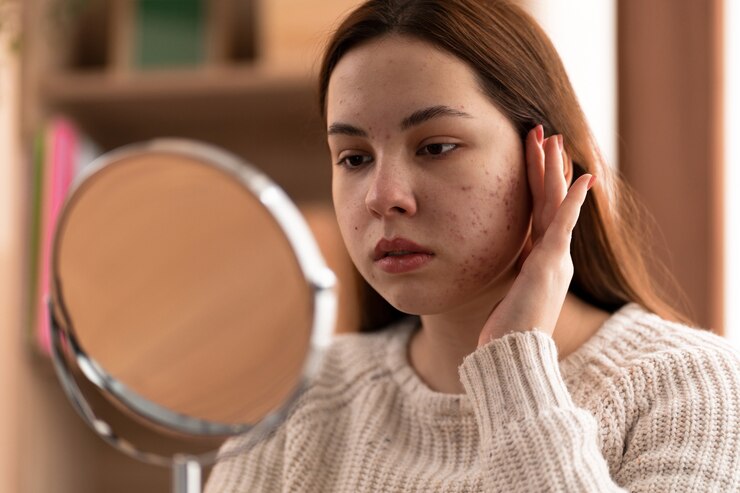The skin is our body’s largest organ, serving as a protective barrier against external threats while also reflecting our internal health. While skincare products and routines are crucial for maintaining healthy skin, another essential factor often overlooked is the role of hormones. Hormones play a significant role in regulating various functions within the body, including the health and appearance of our skin. Understanding the intricate connection between hormones and skin health is essential for achieving and maintaining a radiant complexion.
Hormones and Their Impact on Skin Health:
Hormones are chemical messengers produced by glands in the endocrine system, influencing numerous physiological processes, including metabolism, growth, reproduction, and mood regulation. Several hormones play a pivotal role in skin health, with fluctuations or imbalances potentially leading to various skin concerns.
1. Estrogen:
Estrogen is a key hormone that contributes to skin elasticity, moisture retention, and wound healing. It stimulates the production of collagen and hyaluronic acid, essential components for maintaining youthful-looking skin.
During menopause or periods of hormonal fluctuations, a decrease in estrogen levels can lead to a loss of skin elasticity, dryness, and the appearance of fine lines and wrinkles.
2. Testosterone:
Testosterone, primarily associated with males but also present in females in smaller amounts, regulates oil production in the skin’s sebaceous glands. Excess testosterone can lead to increased sebum production, contributing to acne and oily skin.
Hormonal imbalances, such as polycystic ovary syndrome (PCOS) or hormonal fluctuations during puberty, can result in acne breakouts and skin congestion due to elevated testosterone levels.
3. Cortisol:
Cortisol, often referred to as the “stress hormone,” is released in response to stress, playing a role in the body’s fight-or-flight response. Chronic stress can lead to sustained high levels of cortisol, which may disrupt the skin’s barrier function and contribute to inflammation and accelerated aging.
Increased cortisol levels can exacerbate existing skin conditions such as eczema, psoriasis, and rosacea, making stress management crucial for maintaining skin health.
4. Thyroid Hormones:
Thyroid hormones, including thyroxine (T4) and triiodothyronine (T3), regulate metabolism and cellular function throughout the body, including the skin.
Hypothyroidism (underactive thyroid) or hyperthyroidism (overactive thyroid) can manifest in skin changes such as dryness, rough texture, hair loss, or excessive sweating, emphasizing the importance of thyroid hormone balance for skin health.
Managing Hormonal Influences on Skin Health:
While hormonal fluctuations are a natural part of life, certain strategies can help manage their impact on skin health:
1. Maintain a Balanced Diet: Eating a nutrient-rich diet with adequate vitamins, minerals, and antioxidants can support hormone balance and overall skin health.
2. Practice Stress Management Techniques: Incorporate stress-reducing activities such as meditation, yoga, or deep breathing exercises to mitigate the effects of cortisol on skin health.
3. Establish a Consistent Skincare Routine: Use skincare products formulated with ingredients that support hormone balance and address specific skin concerns, such as retinoids for anti-aging or salicylic acid for acne-prone skin.
4. Seek Professional Guidance: Consult with a dermatologist or endocrinologist if you experience persistent skin issues or suspect hormonal imbalances that may require medical intervention or hormone therapy.
Understanding the intricate relationship between hormones and skin health is crucial for achieving a radiant complexion at any age. By recognizing the impact of hormones on skin function and implementing strategies to support hormone balance, you can nurture healthy, glowing skin from the inside out. Embracing a holistic approach to skincare that considers both internal and external factors is key to unlocking your skin’s full potential and maintaining its vitality for years to come.








